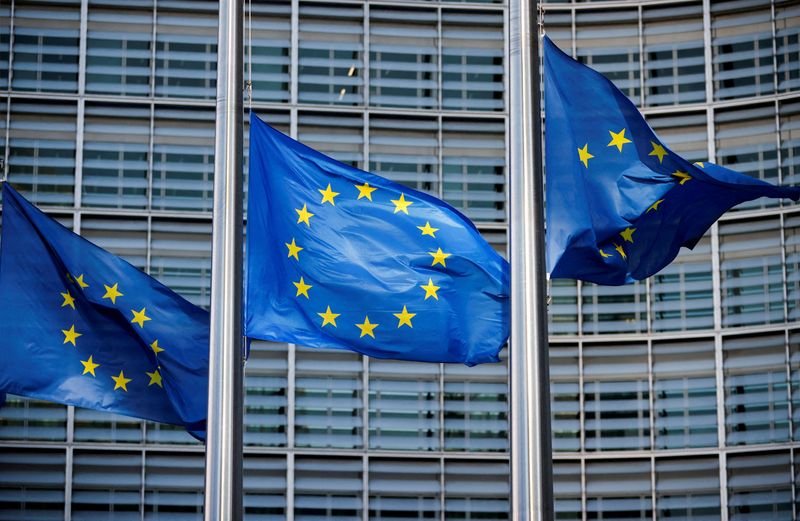

© Reuters. FILE PHOTO: European Union flags fly outside the European Commission headquarters in Brussels, Belgium, March 1, 2023.REUTERS/Johanna Geron/File Photo
By Foo Yun Chee
BRUSSELS (Reuters) – EU countries and lawmakers on Thursday agreed to rules which will require Europe-based companies to prioritise production of key products to prevent a supply chain crisis such as that prompted by the COVID-19 pandemic and Russia’s Ukraine invasion.
The European Commission proposed the Single Market Emergency Instrument last year, following in the footsteps of the United States and Japan.
The move was also spurred by the row with AstraZeneca (NASDAQ:) in 2021 over delays in delivering COVID-19 vaccine doses to the 27-country European Union.
The political deal reached on Thursday however watered down part of the EU executive’s proposal after criticism from businesses worried about requirements that would force them to break commercial contracts and expose corporate secrets, confirming a Reuters story last week.
The agreement also strengthened EU countries’ role vis-a-vis the Commission.
The new powers allow the Commission to issue so-called priority-rated requests to buy critical goods or services from companies which have the option to accept them or not.
The Commission can offer companies liability waivers to prioritise its orders at the expense of the firms’ other contractual obligations.
The new rules allow EU countries to jointly procure crisis-relevant or critical goods or services.
The EU executive can request data from companies on the stock level of certain products but companies can refuse as long as they explain why.
“Today we made the internal market better equipped to face the future crises,” said lawmaker Andreas Schwab who led negotiations for the European Parliament.
The new legislation sets up a three-tier alert level, where a vigilance or emergency mode will be activated when there is a threat that will prompt governments to coordinate their response.






